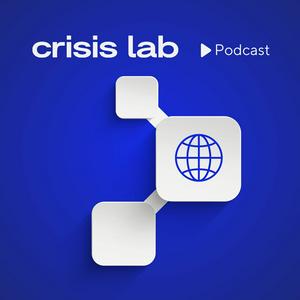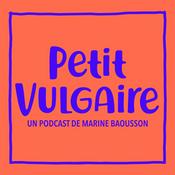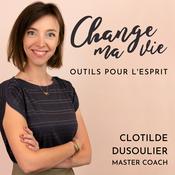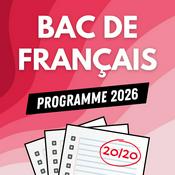67 épisodes
- In this special year-end episode of the Crisis Lab Podcast, host Kyle King sits down with a panel of industry leaders: Todd De Voe, Matt Green, Anastasia Maynich, Laura James, and Ralph Bloemers. They dissect the chaotic landscape of 2025 and the evolving role of the emergency manager.
What it reveals: the dangerous lag between the velocity of modern crises and our traditional response systems. It also exposes the "capacity illusion" which is the belief that government agencies alone can handle the scale of today's disasters.
Between the LA wildfires and the cascading infrastructure failures of 2025, the profession learned a hard lesson. Operational confidence can no longer mask the fragility of our communities.
The panel tracks how "governance from 30,000 feet" often disconnects resources from the people who need them most. This creates a dangerous gap where policy meets reality.
This conversation offers not a celebration of resilience, but a call to action. It reflects on the need to embrace "complex adaptive systems" rather than rigid command structures.
It challenges the sector's hesitation to truly engage the public. It forces us to ask a hard question. Are we building systems that protect the status quo? Or are we ready to let communities lead their own recovery?
Show Highlights
[03:06] Introducing the Panel of Experts
[07:02] The impact of speed and complexity in crisis response
[09:33] The reality of under-resourced local emergency managers
[29:37] Engaging community voices over official messaging
[39:25] Understanding Fire Risks
[40:02] The Role of Emergency Managers
[41:12] How top-down governance fails neighborhood reality
[42:43] Complex Adaptive Systems
[44:35] Emergency Management Challenges
[47:52] Learning from indigenous wisdom and fire stewardship
[53:25] Why every home needs its own emergency manager
[54:37] Recovery and Long-Term Challenges
[01:03:17] Predictions for 2026: The context-switching trap
[01:17:46] Closing Thoughts and Resources
Connect with the Guests
Anastasia Maynich
LinkedIn: Anastasia Maynich MA, MS
YouTube: XanamayX
Website: xanamayx.com
Podcast: Beyond the SOP
Matt Green
LinkedIn: Matt Green
Newsletter: State of Disaster
Book Club: Disaster Discourse
Company: GEMS Ready
Todd De Voe
LinkedIn: Todd Thayer De Voe, MPA, CEM®
Substack: Todd T. De Voe
Newsletter: Emergency Management Network
Laura James
LinkedIn: Laura James
Podcast: Resilient HERoes
Ralph Bloemers
LinkedIn: Ralph Bloemers Operationalizing AI: How Senior Emergency Managers Can Fight Burnout with Tom Sivak
17/12/2025 | 38 minIn this episode of the Crisis Lab Podcast, host Kyle King speaks with Tom Sivak, Chief Emergency Manager at Emergency Management One, about the fundamental shift in the crisis management profession from a knowledge economy to an allocation economy.
What it reveals: the unsustainable nature of manual information processing in an era of polycrisis and velocity.
With emergency management agencies facing chronic understaffing and budgets that demand "more with less," the traditional model of the "Rolodex leader" who holds the entire plan in their head is failing. Sivak argues that trying to manually process the astronomical amount of data in modern crises is no longer a badge of honor, it is a strategic vulnerability.
This conversation offers a pragmatic roadmap for operationalizing AI not as a tech trend, but as a survival mechanism. It reflects what modern leadership demands: moving from being the "writer" of every brief to the "editor" of intelligence, building "blue sky" muscle memory so tools work when the pressure mounts, and reclaiming the "gut intuition" that only a human can provide.
Show Highlights
[04:00] Why AI is the only scalable solution for the "do more with less" mandate
[06:00] The "Forethought" Principle: Why using AI only during disasters guarantees failure
[08:00] Parallels to 1994: How the industry feared the internet before it became essential
[13:00] The maturity model shift: Moving leaders from "writers" to "editors"
[17:00] Using efficiency to focus on community resilience and mental health
[21:00] The Human Lever: Why algorithms can process data but cannot replace gut intuition
[23:00] Why value now comes from directing resources, not retaining facts
[25:00] Validating the Emergency Manager's role as the original "Allocation" leaderGovernance, Bureaucracy, and Recovery Lessons from Christchurch with Brenden Winder
12/12/2025 | 28 minIn this episode of the Crisis Lab Podcast, host Kyle King sits down with Brenden Winder (Christchurch City Council). They dissect the fourteen year recovery journey following the Christchurch earthquakes.
What it reveals: the dangerous illusion of short term success in emergency management. It also exposes the silent erosion of institutional memory.
Between the 2010 earthquake (where systems appeared to hold) and the devastating 2011 event that claimed 185 lives, Christchurch learned a hard lesson. Operational confidence can mask systemic fragility.
Winder tracks how the rush to add governance layers actually reduced transparency. This created barriers between resources and the community they were meant to serve.
This retrospective offers not a celebration of resilience, but a warning. It reflects on the "asymmetry of recovery." Infrastructure is rebuilt while deep pockets of community trauma remain.
It challenges the sector's reliance on international templates. It forces us to ask a hard question. Are we building systems that actually fit the local 80%? Or are we just applying the international 20%?
Show Highlights
[00:00] The limits of international frameworks in the face of neighborhood reality
[03:00] The dangerous gap between perceived success (2010) and catastrophic reality (2011)
[06:00] When adding more governance structure reduces community transparency
[08:00] How election cycles and staff turnover erase the "intellectual property" of disaster response
[17:00] Why "returning to normal" is a myth when infrastructure rebounds faster than people
[21:00] Why international best practice is only a fraction of the solution
[24:00] Contrasting the US emergency management "struggle session" with New Zealand's depoliticized approach- In this episode of the Crisis Lab Podcast, host Kyle King examines Sweden's transformation from traditional emergency management to integrated security governance.
What it reveals: the gray zone reality facing emergency management professionals across Europe.
Throughout 2025, coordinated Russian operations across Baltic civilian infrastructure exposed fundamental flaws in crisis management systems built for discrete events.
Sweden's response offers not a blueprint to copy, but a mirror. It reflects what sustained multi-domain pressure demands: rethinking where emergency management sits in governance, how capability distributes across society, and what "prepared" means when crises don't end.
Show Highlights
[0:40] Russia's systemic campaigns across European civilian infrastructure in 2025
[01:44] Gray zone operations overwhelm traditional emergency management coordination
[03:00] Denmark's reality check: Copenhagen Airport shutdowns connect to shadow fleets and cyber intrusions
[03:50] Sweden's systematic rebuild treats gray zone reality as permanent operating condition
[05:07] Total Defence integration model eliminates separation between military and civilian crisis management
[09:36] Why surge capacity models collapse under continuous multi-domain pressure
[12:00] The fundamental question: governance change or improved emergency response?
[13:00] Missing piece: institutional recognition that informal coordination networks are the foundation of evolution
Connect with Kyle King
LinkedIn - In this episode of the Crisis Lab Podcast, host Kyle King examines how gray zone operations are fundamentally reshaping civilian crisis management across Europe. Kyle walks through Russian drone incursions over Poland, GPS jamming affecting hundreds of thousands of flights, and shadow fleet operations cutting undersea cables to demonstrate why traditional emergency management frameworks can't handle sustained, multi-domain pressure designed to exhaust coordination capacity.
Through real-world examples like Poland's border closure disrupting €25 billion in trade and Denmark's coordination trap, the episode reveals how practitioners are already building informal networks out of necessity because official structures move too slowly. NATO members are invoking Article 4 consultations over civilian incidents. Emergency managers are operating at sustained alert levels for weeks without recovery phases.
Tune in to understand why the transformation from emergency management to security governance isn't optional anymore, and how Crisis Lab's Forum provides the strategic infrastructure for professionals navigating this shift in real time.
Show Highlights
[00:25] Defining the gray zone and why it matters for civilian crisis management
[01:30] September 2025 Russian drone incursions and NATO's first intercept over member territory
[02:15] GPS jamming surge: 700 incidents in 2025 vs 55 in all of 2023
[03:00] Why traditional emergency management assumptions no longer hold
[04:15] How gray zone operations target civilian coordination capacity, not military assets
[05:00] Poland's 12-day border closure and the €25 billion trade route disruption
[06:15] Cascading effects: pharmaceutical supply chains and continental public health coordination
[07:00] The coordination trap: when organizational charts become obstacles
[08:00] Sweden's bureaucratic response to shadow fleet operations
[09:00] What sustained operational capability actually requires
[10:15] Intelligence integration as a civilian function
[10:45] Training for multi-domain pressure and information fog
[11:15] How informal networks are holding when formal structures fail
[12:00] The Forum at Crisis Lab: strategic infrastructure for the security governance transformation
Plus de podcasts Éducation
Podcasts tendance de Éducation
À propos de Crisis Lab
Where expertise meets influence. Gain senior-level insights in policy, strategy & resilience.
Site web du podcastÉcoutez Crisis Lab, Ces questions que tout le monde se pose ou d'autres podcasts du monde entier - avec l'app de radio.fr

Obtenez l’app radio.fr gratuite
- Ajout de radios et podcasts en favoris
- Diffusion via Wi-Fi ou Bluetooth
- Carplay & Android Auto compatibles
- Et encore plus de fonctionnalités
Obtenez l’app radio.fr gratuite
- Ajout de radios et podcasts en favoris
- Diffusion via Wi-Fi ou Bluetooth
- Carplay & Android Auto compatibles
- Et encore plus de fonctionnalités


Crisis Lab
Scannez le code,
Téléchargez l’app,
Écoutez.
Téléchargez l’app,
Écoutez.







































